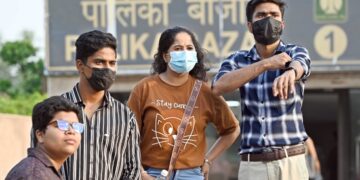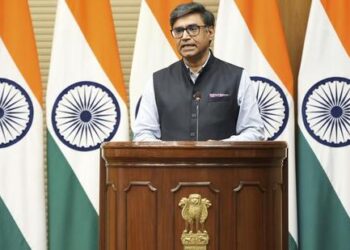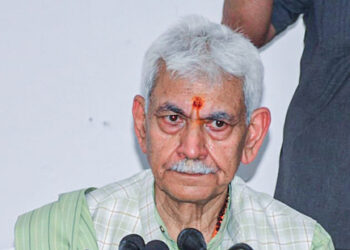India has registered a renewed uptick in Covid-19 cases, crossing the 1,000 mark in active infections, with four Omicron subvariants — LF.7, XFG, JN.1, and NB.1.8.1 — identified across different regions of the country. Despite the spike, the Indian Council of Medical Research (ICMR) and government officials have advised the public to remain cautious but not alarmed, assuring that the symptoms linked to these variants are mild and manageable.
The ICMR, in its latest update, confirmed that the subvariants detected are all mutations of the Omicron lineage. According to ICMR Director General Dr. Rajiv Bahl, ongoing surveillance is being conducted to understand the cause behind the slight surge. “The four variants that we have found are subvariants of Omicron. But more samples are being tested to understand the evolving situation,” Dr. Bahl told ANI.
Importantly, the World Health Organisation (WHO) has classified two of these subvariants — LF.7 and NB.1.8 — as “Variants Under Monitoring” and not as “Variants of Concern” or “Variants of Interest”, indicating that current data does not suggest any severe threat.
Dr. Bahl also emphasized that India is well-prepared to respond to any possible escalation. “The government has developed platforms to create new vaccines. If a new variant becomes dominant or dangerous, we will evaluate the current vaccines’ effectiveness and develop targeted ones if needed,” he added.
Meanwhile, in Delhi, Health Minister Pankaj Singh reassured citizens that the national capital is equipped and ready. “We have advised all hospitals to ensure bed availability, oxygen supply, and stock of medicines as a precaution. But there is no need to worry — the new variant behaves like a common viral infection,” Singh said.
As per the latest data from the Ministry of Health and Family Welfare, India recorded 752 new Covid-19 cases, bringing the total number of active infections to 1,009. Kerala remains the most affected state, accounting for 430 of these active cases.
The government’s messaging remains clear — while vigilance is essential, panic is not warranted. Citizens with low immunity or pre-existing illnesses are advised to take extra precautions, including wearing masks in crowded areas and maintaining hygiene.
With the healthcare infrastructure on alert and no evidence of severe illness, the focus remains on monitoring, preparedness, and ensuring that misinformation does not lead to unnecessary fear.








 India
India












